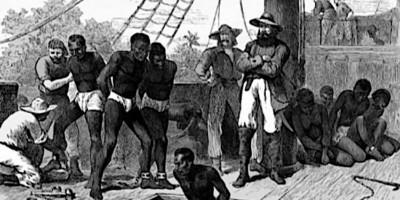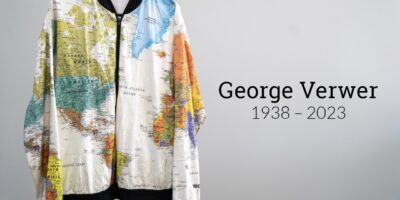Believers across Europe would affirm the statement that ‘Jesus is Lord of all’ with a hearty ‘Amen!’
Yet when it comes to spelling out what the lordship of Jesus looks like outside of church affairs, or personal discipleship, where do we begin? Where, for example, can we go to learn about what that lordship means concerning politics and government? or law and justice? or business and economics? art and culture? international affairs and European integration?
Where can a young person be equipped with biblical understanding to be a change agent for the Kingdom as a journalist? a politician? a lawyer? a social activist? an educationalist? a banker? an entrepreneur? a scientist? a civil servant?
Biblically-based courses exploring these kinds of fields are scarce.
We are often not sure how to think about those parts of modern life in terms of a gospel in which Jesus restores or reconciles together ‘everything under heaven and on earth’. Everything!
Yet as the Dutch theologian/politician/journalist/educationalist Abraham Kuyper famously stated, ‘there is not one square inch of human life where Christ, who is sovereign over all, does not say “Mine!”’
Since 2010, we in the Schuman Centre for European Studies have offered schools, courses, events, tours and publications exploring the lordship of Christ over all spheres: European history, the ‘-isms’ of European politics, international affairs, art and culture, sex and gender, business and economics, and other domains of life.
In this year’s Summer School of European Studies we will ask ourselves how to be salt and light in ‘Our Changing Europe’. What is changing in our European society? How should we – in our churches, movements and as individual players in daily life – remain consistent yet adapt to change? What changes is Russia’s invasion of Ukraine bringing to us all? Where can we see God at work behind the changes? How can we ‘seek the welfare of the city’ and of our society as ‘exiles’ in a secular and multi-religious society? How does our hope of the Kingdom change our perspective of all that’s happening around us? How can we be like the sons of Issachar who ‘understood the times and knew what Israel should do’?
This five-day residential course will be held August 21-25, Monday to Friday, in Amsterdam, in the YWAM centre of De Poort. Together with our Schuman Centre senior researcher, Evert van de Poll, and other contributors, we will explore these issues through seminar sessions, discussions and city walks.
Equipping for the public square
On Saturday (August 26) we plan to hold in Amsterdam an inaugural European Studies Forum convening those interested in developing modules for equipping for the public square for use in training institutions across Europe. Such courses could include:
1. Understanding Europe
2. Understanding politics and government
3. Understanding the European Union
4. Understanding journalism
5. Understanding education
6. Understanding law and justice
If this interests you, please contact me directly.
Why has there been this scarcity of teaching in these fields? What enabled Kuyper to be a leader in the spheres of politics, education and journalism alongside his church involvement?
By and large, the evangelical movement has followed the trajectory set by Martin Luther’s central theology of ‘justification by faith’ during the Reformation. This was sorely needed as a doctrine neglected in the Catholic Church of the day. Yet his Reformation was primarily focused on the church and not on the broader society.
God’s sovereignty
A generation later, John Calvin made Geneva his centre of a Reformation based on a broader, more comprehensive theology: the sovereignty of God. Kuyper stood on Calvin’s shoulders when he made the statement above. Often this doctrine of God’s sovereignty has been interpreted exclusively to mean that God in his sovereignty has chosen his ‘elect’ to join him in heaven, while he has damned the rest to go to hell.
Calvin believed strongly that God governed heaven and earth by his Providence, and so reigned over all things that nothing happened without his counsel. While his doctrine of predestination has been controversial through the centuries, Calvin’s understanding of how God governed all human life transformed his adopted home city of Geneva from ‘the smelliest city in Europe’ to what the Scottish reformer John Knox called ‘the most perfect school of Christ since the days of the Apostles’.
Under Calvin’s daily teaching, Geneva became an orderly, hard-working, model Protestant republic. Calvin became statesman, lawmaker, churchman and educationalist. The Genevan model of politics, government, law and church structure spread through the international networks radiating out into many parts of Europe, particularly in the north. Calvin’s legacy explains why Geneva is an internationalist city of global influence today.
Understanding God’s sovereignty in human affairs is vital for understanding our changing Europe today.
Yes, Jesus is truly Lord of all. Come and explore with us together what that means for us in Europe this summer.
p.s. The Summer School for European Studies costs €250 tuition fees, and €100 accommodation. To register, or for further information, write directly to info@schumancentre.eu.
Till next week,



